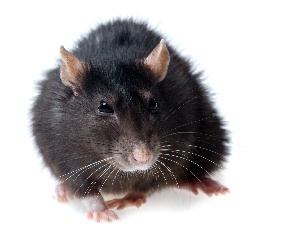 Lasser Fever is mainly tranmitted through rodents and has killed close to 300 people in Nigeria
Lasser Fever is mainly tranmitted through rodents and has killed close to 300 people in Nigeria
One person has been confirmed dead in the outbreak of Lassa Fever in Ghana, according to Director General of the GHS, Dr Anthony Nsiah-Asare.
The detection was made after a test conducted by the Noguchi Memorial Institute, Dr. Nsiah-Asare confirmed to Accra-based Peace FM.
He’s thus urged the public to report any suspected case of the fever, cautioning them to be wary of rodents and maintain good hygiene.
The Ghana Health Service (GHS) issued a nationwide Lasser Fever alert in February and placed all health facilities across the country on high alert.
There’s an outbreak of the disease in 18 states in Nigeria and 31 people dead out of the 300 cases recorded.
The disease has already spread to neighbouring Togo and Burkina Faso.
There was an outbreak of Lasser Fever in 2011.
General Information on Lassa fever
Lassa fever is an Acute Viral Haemorrhagic Fever illness which is endemic in West Africa. The incubation period is 6-21 days. The onset of LF illness is often gradual, with non-specific signs and symptoms and commonly presents with fever, general weakness and malaise at the early onset.
After a few days, headache, sore throat, muscle pain, chest pain, vomiting, diarrhoea and abdominal pain may follow. Severe cases may progress to show facial swelling, and bleeding tendencies (from mouth, nose, vagina or gastrointestinal tract, and low blood pressure. Shock, seizures, disorientation, and coma may be seen in the late stages. Complications include: deafness, transient hair loss and gait disturbance may occur during recovery. About 80 % of Lassa Fever infections are mild or asymptomatic.
• Lassa fever virus is transmitted to humans via contact with food or household items contaminated with the urine, saliva faeces, and blood of the rodent (Multi-mammate rat).
• Person-to-person infections and laboratory transmission can also occur, particularly in hospitals lacking adequate infection prevent and control measures.
• The disease is endemic in the rodent population in parts of West Africa and the multi-mammate rat serves as reservoir for the virus.
• Lassa fever is known to be endemic in Benin, Guinea, Liberia, Mali, Sierra Leone and parts of Nigeria, but probably exists in other West African countries as well.
• Ghana recorded first confirmed case(s) in 2011 and two districts, one each in Ashanti and Eastern regions then confirmed outbreaks of Lassa fever.
• Early use of Ribavirin (within seven days of disease onset), supportive care with re-hydration and symptomatic treatment improves survival.
• There is no effective vaccine for the disease at the moment.